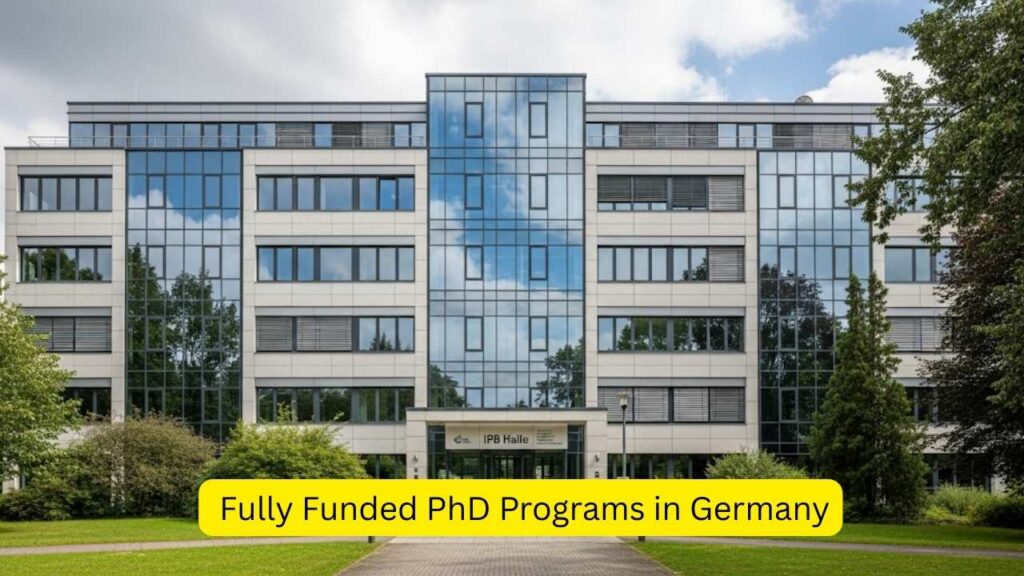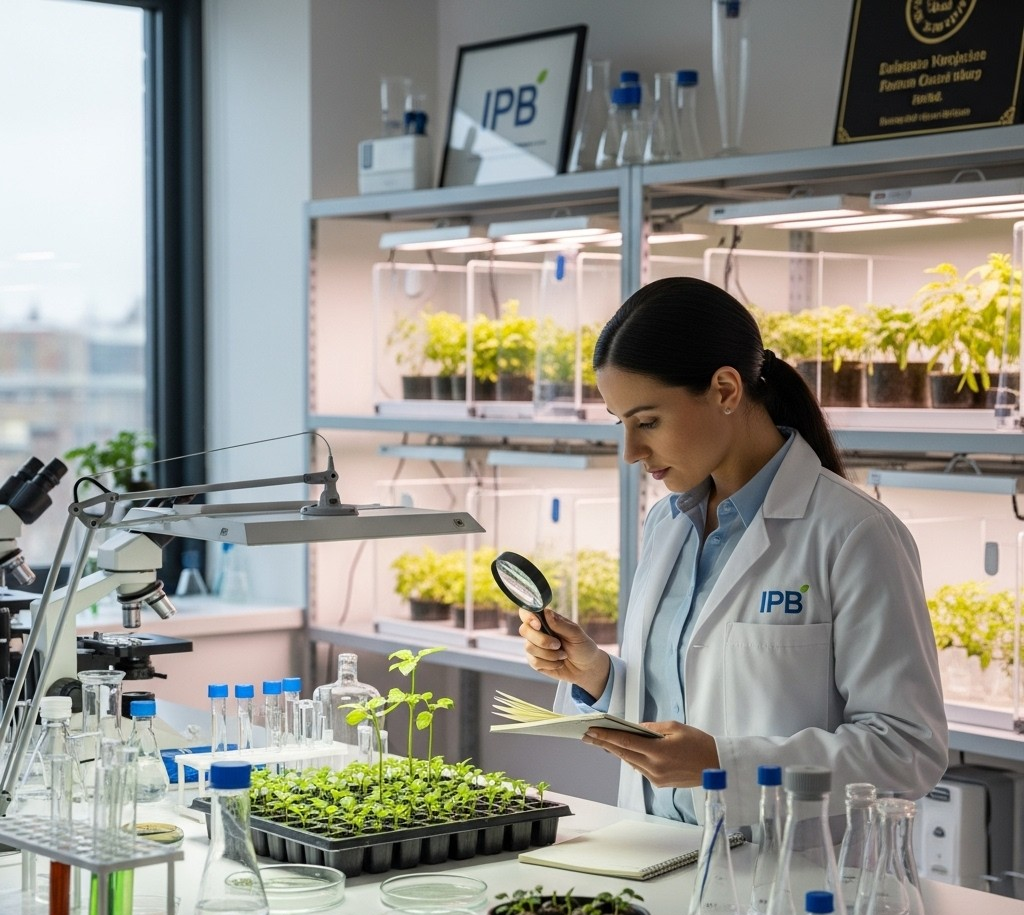Dreaming of a research career at the cutting edge of plant science, but worried about funding? You’re not alone. Many aspiring scientists face the same challenge, but finding a fully funded PhD program in Germany, like those at the renowned Leibniz Institute of Plant Biochemistry (IPB), can make that dream a reality. This guide is designed to empower you with the knowledge and practical tips you need to successfully navigate the application process and secure a spot in a top-tier program. I’ve spent years advising students, and in my experience, a clear strategy and a deep understanding of what institutions like the IPB are looking for can make all the difference.

Why a Fully Funded PhD in Biology at IPB is a Game-Changer
The Leibniz Institute of Plant Biochemistry (IPB) is an internationally recognized, non-university research institution in Halle, Germany. As a member of the prestigious Leibniz Association, the IPB offers an exceptional environment for doctoral students. But what makes it truly stand out is its commitment to supporting its researchers. The PhD positions at IPB are generally fully funded, meaning you’ll receive a salary that covers your living expenses, health insurance, and other costs, allowing you to focus entirely on your research without financial stress. IPB Job Postings, This isn’t just a scholarship; it’s a job where your primary task is to conduct groundbreaking research. Official IPB Website.
Finding the Right Opportunity: The IPB Approach to PhD Admissions
Unlike some universities that have a single, yearly application window, the IPB and other Leibniz institutions often recruit PhD candidates for specific, project-based positions. This means there isn’t one universal deadline for a “Class of 2026.” Instead, projects are advertised throughout the year as funding becomes available.
To find these opportunities, you need to be proactive and strategic. Here’s how to do it:
- Check the Official Job Portal: The most reliable source is the official IPB website’s career section. They post open PhD positions with detailed project descriptions, supervisor names, and application deadlines.
- Explore the Leibniz Association: You can also find IPB positions and other related opportunities on the broader Leibniz Association job portal. This gives you a wider view of what’s available across the network.
- Reach Out Directly: If you have a specific research interest, don’t hesitate to contact a research group leader whose work aligns with yours. Even if they don’t have an advertised position, a compelling inquiry with your CV and a brief statement of interest could open a door. Many successful applicants I’ve seen were the result of a proactive email and a great conversation.

Crafting Your Application: The Core Requirements
A successful application for a PhD in biology at the IPB hinges on three key documents: your CV, your motivation letter, and your academic transcripts.
The CV and Transcripts
Your Curriculum Vitae (CV) should be clear, concise, and focused. Highlight your academic achievements, research experience (including any master’s or undergraduate projects), publications (if any), and relevant skills (e.g., specific lab techniques, computational tools). Make sure your CV directly addresses the requirements of the advertised position. Your academic transcripts and degree certificates should be well-organized and, if coming from outside Germany, you may need to have your foreign qualifications assessed for equivalence.
The Motivation Letter: Your Story
The motivation letter is arguably the most crucial part of your application. It’s your chance to move beyond a list of facts and tell a compelling story. This is where you connect your past experience to your future aspirations.
Here are some tips for writing a standout motivation letter:
- Introduce Yourself and Your Purpose: Start by stating who you are and which specific PhD position you are applying for. Mention how you learned about the opening.
- Connect Your Experience to the Project: Don’t just list your accomplishments. Explain how your previous research, coursework, and skills have prepared you for this specific project. For example, if the project involves mass spectrometry, detail your experience with that technique and how it’s relevant.
- Show Your Research Passion: Explain why this particular research topic excites you. What questions do you hope to answer? What is your personal drive to contribute to this field? This is your opportunity to demonstrate genuine intellectual curiosity.
- Why IPB? Why Germany?: Admissions committees want to know you’ve done your homework. Mention why you’ve chosen the Leibniz Institute of Plant Biochemistry over other institutions. It could be the specific research environment, the reputation of the supervisor, or the excellent facilities. This also applies to Germany itself; why is it the right place for your PhD journey?
- Be Professional and Specific: Maintain a formal but engaging tone. Avoid generic statements and be as specific as possible. If you are applying for a position, reference the job ad’s reference number.

Essential Application Elements and Life in Germany
Letters of Reference
Most positions require at least two letters of recommendation from academic referees who know your work well. Choose professors or supervisors who can speak to your research abilities, work ethic, and potential as a doctoral researcher. Make sure to give them plenty of time to write and send their letters.
Language and Living
While a strong knowledge of German is a great asset for daily life, the working language in most IPB research groups is English. Excellent English skills, both written and spoken, are a mandatory requirement.
As for living, Germany offers a high quality of life with reasonable costs, especially compared to other major European cities. Halle (Saale), where the IPB is located, is a beautiful, historic city with a vibrant student community and affordable living. The IPB is committed to a family-friendly and diverse environment and offers support for work-life balance.
A Note on the ‘Initiative’ Application
The IPB also accepts “initiative applications” or unsolicited applications. This is for candidates who want to propose their own research project or express interest in joining a specific research group even if no position is advertised. This path requires an even more well-thought-out and unique motivation letter, where you clearly outline your research interests and explain how they align with the work of a particular group.
Your Guide to the International Talent Scholarship 2026 at the University of Real World
Acing Your Application: A Guide to INSEAD MBA Scholarships for the January 2026 Intake
FAQ
Q1:What is the typical duration of a PhD program at IPB?
A PhD program at IPB typically lasts for three to four years.
Q2:Do I need to speak German to apply?
No, a strong command of English is sufficient for the application and for most daily research activities at the institute. However, knowing some German can certainly make daily life easier.
Q3:What academic background is required?
Applicants are typically required to have a Master’s degree (or equivalent) in biology, biochemistry, bioinformatics, or a closely related field.
Q4:Can I apply as an international student?
Yes, the IPB is an international institution and actively encourages applications from qualified students around the world.










